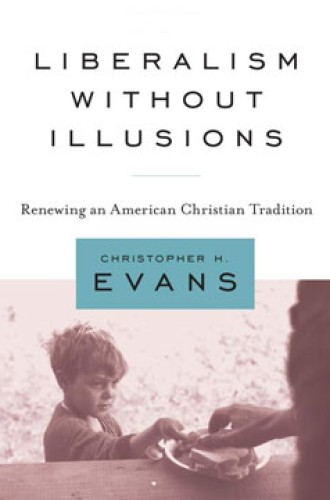A review of Liberalism Without Illusions
While I was writing this review, I came across a statement from the managing editor of Christianity Today, who wrote that his magazine offers "independent journalism about an important niche of American Christianity." He went on to say, "We are the 'new mainline,' a principal voice of Protestant Christianity in America."
I doubt that Christopher Evans would disagree. Contemplating the 21st century, he concludes in Liberalism Without Illusions that "the future of American liberal Christianity is one characterized by a posture of exile, where we no longer can expect that the larger culture cares what we are saying or doing." It wasn't always thus, of course, and part of the appeal of this superb book is the author's careful attention to the past.
Evans opens with a definition:






